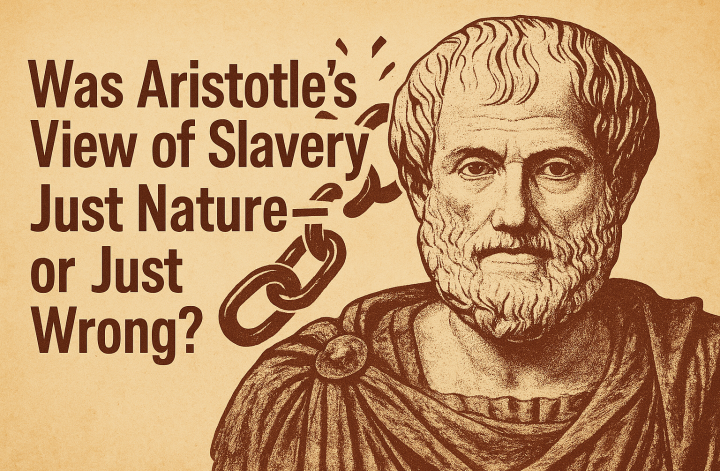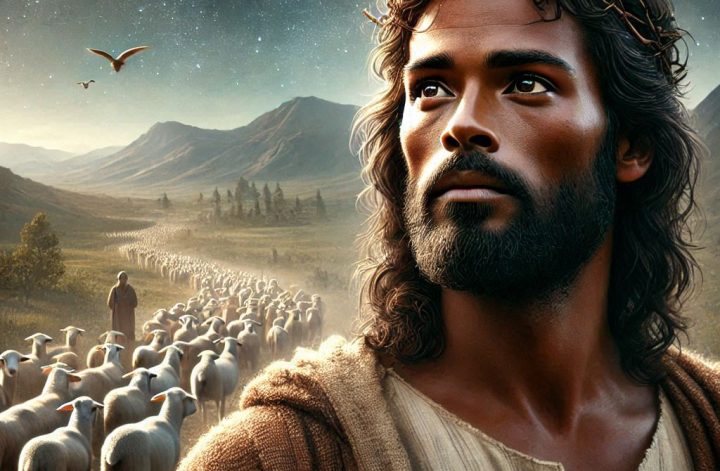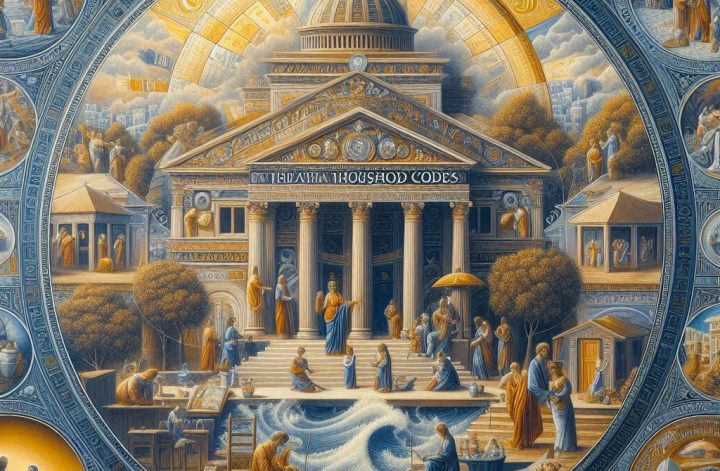The far-reaching divide on the authenticity, intentions, and the compositional arrangement of Aristotle’s Politics is quite understandable. In the all-encompassing system Aristotle was building, the Politics was supposed to be the crown of it all. The Nicomachean Ethics is to find its ultimate fulfilment in the Politics since politics, as Aristotle asserts, is the noblest place where human eudemonia can be found. The apparent inconsistencies and seemingly infra dig arguments found in the Politics, however, have raised several questions. In an apparent move to rescue Aristotle, some experts have advanced interpretive alternatives to the work.
Theories abound on what one could make of the body of works titled Politics. As Carnes Lord explains: “the specific difficulties posed by the text of the Politics continue to be regarded by many as convincing evidence of a lack of unity and coherence in the work as a whole, and in its basic argument” (459-60). For instance, Lord summarizes the position of Werner Jaeger, an Aristotle scholar, thus “the Politics is essentially an amalgam of two separate treatises or collections of treatises written at widely separated intervals and embodying very different approaches to the study of political phenomenon” (460). Internal evidence within the work informs the general suspicions scholars hold about the integral status of the work. Scholars have pointed out inconsistencies with the endings of a sizeable portion of the books of the work, as well as transitioning clauses that do not seem to belong where they are found. The discovery that some of Aristotle’s works were only intended by him as educational treatises and not for popular consumption has also split scholarly views on the matter.
However, one thing that does not seem to be debated (or even debatable) is that Aristotle did write a big chunk of the Politics for whatever purpose, and thus employed (some of) the arguments in the book. More pointedly, it seems quite apparent that the role of nature in Aristotle’s Politics is no editor’s making but a rather essential part of what Aristotle intended to do. Thus, it is fair to critique the work. In this piece, I shall argue that Aristotle’s use of Nature in the Politics to establish the naturalness of slavery and, by extension, the naturalness of the polis is dubious and untenable.
The Politics begins with a description of the types of natural rules and associations. Aristotle writes: “We observe that every state is a certain sort of association, and that every association is formed for some good purpose”1 (1252a1-3). Thus, Aristotle’s natural teleology is found in the very first sentence of the work when he says that every koinonia (community or communality) is formed for some end, the end that people think is good for the specific koinonia. The state or city-state is the best among associations because it is both the highest and embraces other associations and, thus, subsumes the good that is in the simpler associations since “all associations aim at some good” (1252a4). Aristotle then proceeds to describe the various types of rules with political importance; these rules not only differ “in point of large or small numbers” (1252a10) but also in kind.
Furthermore, they are necessarily natural. The beginning of all associations is when “those which are incapable of existing without each other… unite as a pair” (1252a26-27). The assertion (for there is no argument here provided) that this couple is otherwise “incapable of existing without each other” deserves to be unpacked. In what sense are these (presumably adult, though the woman may be much younger) human beings, who hitherto lived independently of each other, suddenly become incapable of existing without each other? Were they existing before and up to the time they are supposedly to go unavoidably into this seminal koinonia? Here, then, is the first place where one sees Aristotle employing what seems like a circularity in his argument.
Aristotle seems to want there to be no will or intellectual contributions from the couple to claim that nature does it all—it is why this cannot be “from choice; rather, as in the other animals too and in plants, the urge to leave behind another such as one is oneself is natural” (1252a28-30). His analogy of lower animals is beneficial in unpacking the intentions here. Lower animals appear to be ruled by the need to propagate their genes. There is seemingly a statistical freedom regarding what two animals may eventually get together to interbreed. Still, if they live long enough, a healthy male animal and its female counterpart have no choice but to interbreed at some point, for this is the “natural” thing to do. This does not seem problematic. How this may absolutely apply to humans endowed with reason is not clear at all. What is clear, however, is that Aristotle needs this reasoning to pass for him to reach his famous conclusion that the city-state is natural. Indeed, he later makes such an explicit conclusion: “Therefore, every state exists by nature, since the first associations did too” (1252a30-31). That is, this conclusion stands only if the first association is natural. Aristotle does not give any air-tight argument for this requirement, resulting in a mere assumption and assertion of the naturalness of the first association. From here on, Aristotle wields the power of nature to posit the naturalness of the other types of rule; without resolving this critical issue of how nature could necessarily bring about the first associations, however, the phrase “by nature” is suspiciously empty. This suspicion is seemingly more warranted when one reads that “anyone who, though human, belongs by nature not to himself but to another is by nature a slave; and a human being belongs to another if, in spite of being human, he is a possession” (1254a14-17). That is, a human is a slave because he is someone else’s possession—and this because he is by nature a slave. The circularity is quite apparent.
Aristotle also asserts that a master and a slave cannot exist without each other. Even the fairest reading of this claim would be problematic. A fair reading would be that he is merely saying that the master and the slave need each other (not by choice or by any other means that may suggest a different arrangement is possible, of course) for preservation. In claiming that the master and the slave cannot exist without each other, just as the first association was unavoidable, the slave would seem to have gained a higher status since the good life of the master is utterly dependent on the slave. That is, the master needs the slave, and this would seem to undermine the concepts of “slaves” and “masters”; for instance, if taken purely philosophically, free from the distortions of history, that the master needs the slave for preservation, the sense in which a master could possess a slave will then be quite problematic unless this possession is reversibly mutual—that is, the claim that “the master is only master of his slave, but does not belong to him, the slave is not only the slave of his master, but belongs to him wholly” (1254a11-13) would be an empty assertion. Indeed, Aristotle later likens a slave to a tool used to effect some end. He writes that the possession of slaves (being a superior type of tool) becomes necessary only because an inanimate tool cannot be self-moved nor could it “perform its own task either at our bidding or anticipating it” (1253a33-34). A slave, however, is an animate tool, but one that is both capable of being “self-moved” (1253a36) and could carry out his tasks at the master’s bidding. By his analogy, the master-slave relationship is unnecessary.
Besides, the fact that the slave can carry out his master’s bidding implies that he shares to some commensurate degree in reason. That is, he is not all-body-and-no-brain. Besides, if we grant that a good slave may reach a point of anticipating his master’s bidding, it becomes even more problematic to see why he may not also be able to “use its intellect to look ahead” (1252a31).
Astronomical works exist in the literature to defend the apparent inconsistencies in Aristotle’s work regarding his use of nature to justify the naturalness of the types of rule he discussed in the first book of the Politics. Wayne Ambler argues that although Aristotle was open to the practice of slavery since he gives it a place in the fulfilling polis he built, he nevertheless cannot be seen without difficulties as sanctioning actual slavery (390). In other words, Ambler sees an important difference between actual slavery and the natural slavery that Aristotle discusses. As he states, “Aristotle’s natural master and natural slave establish standards which deny rather than establish the naturalness of actual slavery (390). Ambler attempts to exculpate Aristotle’s texts from readings that make him into a proponent of the practice of actual slavery by arguing that the kind of relationship that Aristotle claims exists between a natural master and a natural slave, comparable to that which exists between the soul (or thought) and the body, is not one to be found among human beings (392). Writing about the supposedly unrealizable conditions for naturalness of slavery, Ambler writes that, in fact, Aristotle “never applies them directly to human beings” (392). One apparent consequence of this claim is that the subject of slavery and its practice, the natural kind in any case, does not apply to human beings—a consequence that is in tension with Aristotle’s claim that slaves are humans (1254a14). If this is the case, it makes one wonder why Aristotle would write extensively about it and even include human slaves in his regime at all.
Rather than concede the arguable inconsistencies in Aristotle’s writings, Ambler argues that these seemingly inconsistent statements are deliberate works of Aristotle to some definite end. Hence whereas Aristotle is generally seen to be inconsistent in having defined slaves as tools of action, not of production (1254a1-8) but later allows for their use in productive capacities such as in agriculture, Ambler counters thus: “If, however, it was Aristotle’s intention to show various differences between natural and actual slavery, and not to simply to ratify actual slavery as natural, then this would not be a sign of failure but one aspect of his success” (396). At best, Ambler makes Aristotle out to be an intellectual deceiver who raises real questions and then provides simulacral responses, or one who uses prevarications to dodge questions.
A less radical attempt to, at least, grant coherence to and, thus, preserve Aristotle’s theory of slavery was provided by W. W Fortenbaugh (quoted by Nicholas Smith), who argues that Aristotle’s seemingly inconsistent views on slavery could be resolved with an improved understanding of the moral psychology that he provides. He particularly attempts to make sense of Aristotle’s denial of slaves of a foresight by arguing that in so doing Aristotle does not necessarily also deny slaves a human status (114):
Aristotle denies the logical or reasoning half of the bipartite soul but not the alogical or emotional half. This means that slaves can make the judgements involved in emotional responses and therefore have at least a minimum share in
the cognitive capacity peculiar to men in relation to other animals.
Smith enumerates the many discrepancies in Aristotle that this reviewed moral psychology approach might resolve satisfactorily. On this reading, notes Smith, it would become possible for real humans to qualify as natural slaves; there now is a basis for natural masters and their slaves to enjoy some kind of camaraderie; indeed, provided the slave stays long enough with the master to learn of and from him, it is conceivable for the slave to be freed at some point or, at least, the idea of slave freedom is more readily conceivable (115). Smith, however, goes on to argue that even this improvement ultimately fails to rescue Aristotle’s theory on slavery. He notes that whereas those philosophers like Wayne Ambler had argued that the conditions for qualifying as a natural slave are beyond humans, on Fortenbaugh’s argument, however, almost all humans would qualify as natural slaves since most people had guardians and parents from whom they received instructions while growing up (116). The chances of survival without these guardians seem quite infinitesimal. Aristotle, however, would not allow for this, for he, in fact, differentiates between the rule over slaves and free-born children (1259b10).
Furthermore, Smith finds problematic Aristotle’s insistence that the rule over slaves be despotic or tyrannical. He observes that there are two models that Aristotle explicitly employs in his writings to explain this master-slave rule: the soul-body relationship and that which Fortenbaugh points out in his article, the intelligence-emotion relationship (117). Aristotle believes that a slave is fundamentally psychically deficient and different from a natural master. As Smith puts it, “slaves are so much more beast-like than man-like that it is Nature’s design that slaves would actually be distinguishable physically from masters” (118). Indeed, contrary to the Ambler-esque claims, Aristotle quite often employs actual analogies to make his points, such as when he concurs with a poet saying, “’It is proper that Greeks should rule non-Greeks’, on the assumption that non-Greek and slave are by nature identical” (1252b7-9). As Smith points out, Aristotle clearly is committing to the view that there are slave candidates among non-Greeks, implying that, at least, some of these people are deficient in ways characteristic of a natural slave (119). What happens after a slave is purchased—assuming Aristotle’s theory can safely legitimize this? Well, the slave comes under the instruction of the natural master, where his status may change as he moves towards the human side of the divide and away from the beast side. But why the continued despotic rule over him since “now the proper model is again reason to emotion” (122)? Smith concludes thus (122):
Aristotle has told us why we can hunt some human beings as we do non-human animals (though not, presumably, for meat), and why some human beings are only actualized as human beings through the guidance of others. But he has never explained why some human beings deserve to
suffer continuing despotical rule.
Malcolm Heath’s “Aristotle on Natural Slavery” is in many ways an improvement on Fortenbaugh’s work, whose goal is to “look for an interpretation of the theory of natural slavery that is credible in the sense of being broadly coherent and plausible” (244). His work rests on a theoretical assumption of extracorporeal data that would be accessible to Aristotle, which Aristotle would justly consider in his writings. Heath defines a moral psychology that has greater explanatory power. He concludes that Aristotle could have meant that natural slaves suffer from limiting impairments that disrupt practical reasoning, deliberation, and “capacity for global deliberation” (253). Heath’s work does appear plausible, and the questions the model may fail to answer are probably the ones Aristotle fails to answer as well. He writes, for instance, that natural slaves lack deliberative capacity, deliberation being “reasoning back from a goal to the action required to implement that goal” (249). The natural question to ask is why? What does one make of a Greek man with a subtle congenital mental impairment leading to a compromised deliberative capacity? Aristotle is not prepared to allow for Greek males to be natural slaves. Besides, as Smith points out, the question of the continuing tyrannical rule of the natural master over his slaves, under the improvement in psychic status that Heath’s formulation of Aristotle’s moral psychology grants the slave, still stands.
Granting the naturalness of the first association to Aristotle and internal consistencies in the Politics, scholars have noted varying points of worry in the Aristotle corpus. Donald Ross, in his “Aristotle’s Ambivalence on Slavery,” points out “a real problem in the Aristotelian corpus concerning slavery” (54). Ross argues that Aristotle is inconsistent in his treatment of slavery in that “in the Nicomachean Ethics it is overwhelmingly the master whose advantage is furthered by slavery” (57) an observation Ross holds to be contrary to the spirit of the following lines in the Politics: “It is clear then that there are some people, of whom some are by nature free, others slaves, for whom the state of slavery is both beneficial and just” (1254b39-41). That Aristotle holds such contrary views on the subject is a “prima facie inconsistency,” argues Ross.
There are points where it seems like Aristotle is torn between maintaining the status quo of his days and breaking through it. Nicholas Smith also points out that Aristotle, a slaveholder himself, “provided in his will that his own slaves be freed” (111). Such a realization makes one wonder what happens to slavery being not only beneficial to the slave but also just. Even worse, what happens to the Delphic knife-like attribute of nature?
Works Cited
Ambler, Wayne. “Aristotle on Nature and Politics: The Case of Slavery.” Political Theory 15.3 (1987): 390-410. JSTOR. Web. 5 Nov 2015.
Aristotle, Politics Books I and II. Trans. Trevor J. Saunders. New York: Oxford, 1995. Print. Clarendon Aristotle Series.
Heath, Malcolm. “Aristotle on Natural Slavery.” Phronesis 53.3 (2008): 243-270. JSTOR. Web. 12 Nov 2015.
Lord, Carnes. “Politics and Philosophy in Aristotle’s Politics.” Hermes, 106. Bd., H. 2 (1978), pp. 336-357. JSTOR. Web. 6 Nov 2015.
Ross, L. Donald. “Aristotle’s Ambivalence on Slavery.” Hermathena No. 184 (Summer 2008), 53-67. JSTOR. Web. 6 Nov 2015.
Smith, D. Nicholas. “Aristotle’s Theory of Natural Slavery.” Phoenix 37. 2 (1983): 109-122. JSTOR. Web. 5 Nov 2015.




1 Comment